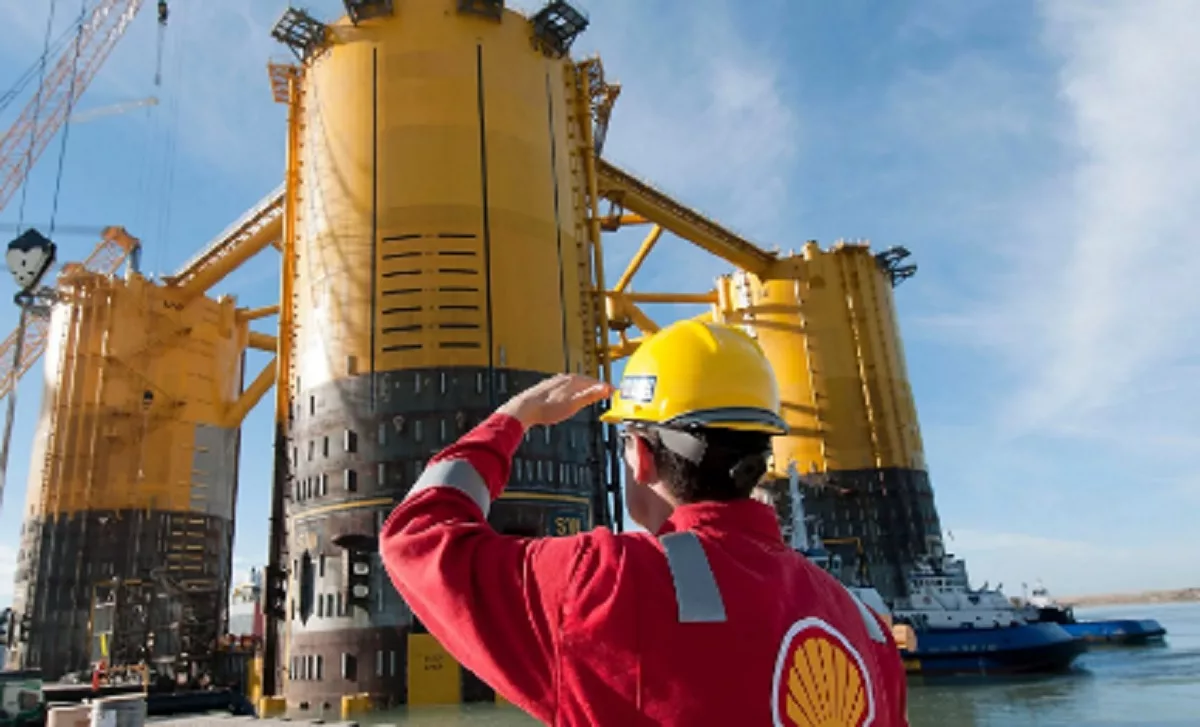Shell Plc has concluded plans to sell its Nigerian onshore oil and gas subsidiary, the Shell Petroleum Development Company of Nigeria Limited (SPDC), to a consortium of five companies identified as Renaissance for a total of $2.4 billion, marking the end of Shell’s nearly century-long operations in Nigeria.
Africa Today News, New York reports that by this divestment, the company is set to exit Nigeria’s onshore operations 88 years after it opened in the country.
It is reported that Shell is hoping to divest the SPDC for $1.3 billion, with additional payments of up to $1.1 billion, according to the official announcement.
This is as Aradel Holdings Plc, Nigeria’s leading integrated indigenous energy Company, announced its acquisition through Aradel Energy Limited of an equity interest in the divested SPDC assets.
This acquisition is premised on the signing of a landmark transaction between Renaissance Africa Energy Company Limited and Shell International Plc to acquire its 100 per cent shareholding in The Shell Petroleum Development Company of Nigeria Limited (SPDC).
Renaissance is owned by ND Western Limited, Aradel Energy Limited, the Petrolin Group, FIRST Exploration and Petroleum Development Company Limited and the Waltersmith Group, each with demonstrable and proven operational capabilities.
This acquisition marks a significant milestone for Aradel, which will bring enormous benefits to its shareholders, further strengthen its financial outlook and consolidate its strategic positioning in the Nigerian energy market.
Read Also: Dangote Refinery Receives First Crude Shipment From Shell
SPDC Limited, which operates with a 30 per cent stake in the SPDC joint venture holding 18 onshore and shallow water mining leases, will continue to be the operator. Other joint venture partners include the Nigerian National Petroleum Corporation (55 per cent), TotalEnergies (10 per cent), and Italy’s Eni (five per cent).
Despite exiting onshore operations, Shell retains its liquefied natural gas plant and other assets in Nigeria.
Aradel is committed to working in partnership with all the stakeholders in Renaissance and the SPDC Joint Venture to ensure a smooth transition and drive continued growth and success in Nigeria and beyond.
Completion of the deal is subject to meeting conditions precedent, and approvals of the Federal Government of Nigeria.
Speaking on the acquisition, Aradel’s chief executive officer/managing director, Adegbite Falade commented “This successful acquisition represents a key step in our journey to becoming a leading energy Company in Africa and aligns with our long-term strategic growth plans.
It also demonstrates our commitment to our “3R” Strategy of Resilience, Robustness, and Redundancy.
Shell’s Integrated Gas and Upstream Director, Zoë Yujnovich, said, the deal will help to simplify its portfolio and help the company focus on disciplined investment in Nigeria targeting it’s deepwater and Integrated Gas positions.
Completion of the transaction is subject to approvals by the Federal Government of Nigeria and other conditions.
Transaction will preserve SPDC’s operating capabilities for benefit of joint venture
The transaction has been designed to preserve the full range of SPDC’s operating capabilities following the change of ownership.
This includes the technical expertise, management systems and processes that SPDC implements on behalf of all the companies in the SPDC Joint Venture SPDC’s staff will continue to be employed by the company as it transitions to new ownership.
Following completion, Shell will retain a role in supporting the management of SPDC JV facilities that supply a major portion of the feed gas to Nigeria LNG (NLNG), to help Nigeria achieve maximum value from NLNG.
“This agreement marks an important milestone for Shell in Nigeria, aligning with our previously announced intent to exit onshore oil production in the Niger Delta, simplifying our portfolio and focusing future disciplined investment in Nigeria on our Deepwater and Integrated Gas positions” said Zoë Yujnovich, Shell’s Integrated Gas and Upstream Director.
“It is a significant moment for SPDC, whose people have built it into a high-quality business over many years. Now, after decades as a pioneer in Nigeria’s energy sector, SPDC will move to its next chapter under the ownership of an experienced, ambitious Nigerian-led consortium.
“Shell sees a bright future in Nigeria with a positive investment outlook for its energy sector. We will continue to support the country’s growing energy needs and export ambitions in areas aligned with our strategy,” he added.
The move further reaffirms the federal government’s desire to meet and even exceed its 2024 oil production target.
The Minister of State for Petroleum Resources (Oil), Heineken Lokpobiri, has reaffirmed that Nigeria will reach and exceed the 2024 crude oil production budget target of 1.7 million barrels per day (bpd).
Currently, Nigeria’s oil production is about 1 million barrels per day, bpd, below its capacity. The government has cited a lack of investments, a shortage of funding sources because of the energy transition, and insecurity among the factors driving the situation.
Nigeria aims to significantly increase its oil production to up to 1.7 million bpd by November 2023, hoping to win a higher quota in the OPEC+ agreement, Gabriel Tanimu Aduda, Permanent Secretary at Nigeria’s Ministry of Petroleum Resources, told Energy Intelligence in July.
Nigeria’s quota was 1.742 million bpd earlier this year, but due to its under production of more than 400,000 bpd, the output cap for Nigeria was lowered to 1.38 million bpd at the OPEC+ meeting early last June.
Nigeria has consistently failed to produce to its quota in the OPEC+ agreement. The combination of pipeline vandalism and oil theft with a lack of investment in capacity has made Nigeria the biggest laggard in crude oil production in the OPEC+ alliance.
